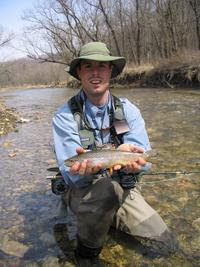 ...Raw milk and livestock siting were topics addressed by speakers during the public appearance segment of the DATCP board meeting.
...Raw milk and livestock siting were topics addressed by speakers during the public appearance segment of the DATCP board meeting.John Peck, Baraboo, a raw milk advocate, wanted to address livestock siting because he was concerned about “liability and remedy.
“By taking away local control, the state assumes responsibility for cleanups resulting from abandoned livestock facilities. In Iowa when you apply for a permit you have to put money into a clean-up fund,” he said.
DATCP’s Richard Castelnuovo said the siting rule prohibits bonding. He also reminded the board that “Sept. 11, 2001, changed the bonding market.”
Board member Mike Krutza pointed out “clean up losses are often borne by lenders.”
Kara Slaughter, representing Wisconsin Farmers Union, had a six-page handout for board members that included her testimony.
While the DATCP has two committees reviewing technical standards in the siting rule, Slaughter emphasized “there is nothing in Wisconsin statute 93.90 or ATCP 51 that prohibits DATCP from reviewing the full rule in the course of this four-year review process. DATCP does not need any special grant of authority to review or revise its own rules.
“DATCP can re-do anything DATCP wrote,” she said, adding “I think the rules are at the edges of what the law does.”
Board member Dick Cates said, “It is our obligation as a board to look at all we can. After four years of learning, ironically, we may be undermining the rule because a lot of the public does not agree with the rule.”
Jennifer Nelson, Sustain Rural Wisconsin Network, urged that an “independent committee study the impacts of the law and related DATCP policies on local government. These results should be compared with the standards for the rules as defined in the law and should recommend procedures to deal with those which are not covered by the technical committee.”
Board member Dick Cates said the Raw Milk Committees have two more meetings scheduled. “I believe members are coming together with a plan the legislature just might approve. It’s a hopeful process n I see a lot of coming together across the industry,” he noted.
Source: Agri-View:read more...




No comments:
Post a Comment